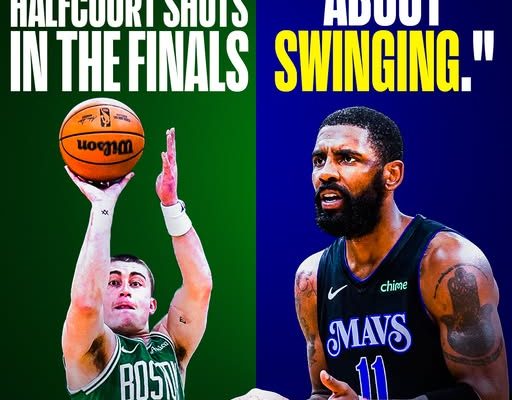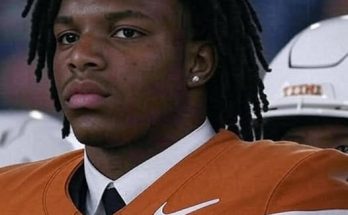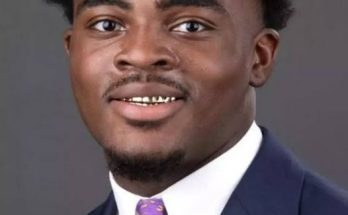Kyrie Irving has never shied away from the big stage. He has walked through fire and emerged with gold, a master of his craft forged in the crucible of NBA pressure. Game 7 of the NBA Finals? He’s been there. A championship on the line? He’s delivered. Clutch moments against some of the greatest players in the history of basketball? He has faced them down with steely composure and a heart that beats to the rhythm of the spotlight. From dueling Steph Curry in 2016 to being the focal point of teams looking to make a deep playoff run, Irving has faced it all. But even the most battle-tested warriors can find themselves caught off-guard when the unexpected happens. And in the NBA, there are few things more unexpected—and more infuriating—than a role player turning into a flamethrower.
In a league defined by stars, the supporting cast often gets overlooked. They are the ones tasked with defending, setting screens, and taking opportunistic shots in the flow of an offense designed around a superstar. Most nights, they play their role quietly and efficiently. But every once in a while, one of them explodes. A career 7-points-per-game guy starts hitting shots like he’s Steph reincarnated. And for someone like Kyrie Irving, who is used to dictating tempo and silencing arenas with surgical precision, these nights present a unique psychological test. Because when a role player gets hot, it’s not just the box score that tilts—it’s the entire balance of power on the court.
Irving, now one of the elder statesmen in the NBA, knows what pressure feels like from every angle. The son of a former professional player and raised in a basketball-rich environment, Kyrie has been the center of attention since his days at St. Patrick High School in New Jersey. At Duke, he played just a handful of games due to injury but still went No. 1 overall in the 2011 NBA Draft. From the moment he entered the league, expectations were sky-high. And he met them with flair and finesse, combining dazzling handles with a shot-making ability that bordered on the supernatural.
But there’s a difference between being ready for the challenge of guarding a Jayson Tatum, a Devin Booker, or a Jimmy Butler, and being ready for, say, the seventh man on the depth chart catching fire out of nowhere. The scouting report doesn’t warn you for that. The adrenaline doesn’t prepare you for it. And more importantly, the ego can take a hit when you’re on the wrong side of an avalanche of threes coming from a player you barely considered a threat.
In the 2024 playoffs, Irving had one such moment. Facing a Western Conference team with a reputation for depth but not necessarily star power, Kyrie and the Mavericks were locked in a hard-fought battle. Luka Dončić drew double teams, Kyrie hunted mismatches, and the defensive schemes revolved around limiting known threats. But what happened next threw all of that out the window. A bench player—hardly a household name—started raining threes like Reggie Miller at Madison Square Garden. Corner shots, transition pull-ups, contested fadeaways—it didn’t matter. Suddenly, this unheralded role player became the axis upon which the game spun.
Kyrie, being the competitor he is, didn’t take it lightly. There was a moment—caught perfectly on the broadcast—where he looked to the bench, jaw tight, eyes burning with frustration. This wasn’t Steph Curry launching logo threes. This was a guy averaging 8 points per game hitting six threes in a single half. It’s the kind of absurd twist that only basketball, in all its chaos and poetry, can deliver. And it did more than shift the scoreboard; it shifted Kyrie’s demeanor.
Irving is a player who thrives on rhythm. His handle is a metronome, his jumper a swing beat. When the game flows his way, he dances—sometimes literally—across the floor, using hesitation moves and spin cycles to make defenders look foolish. But when a role player starts erupting, rhythm goes out the window. Coaches scramble to adjust, rotations change, and suddenly the ball isn’t in Kyrie’s hands as often as it should be. The trust that is usually built over the course of a game between star and system gets challenged. Because if the other team’s sixth or seventh man can’t miss, suddenly every possession feels like a crisis.
There’s something uniquely triggering about that scenario for a player of Irving’s caliber. It’s not ego in the traditional sense. It’s the principle of it. For years, Kyrie has battled the best of the best. When he gets beat by an All-NBA defender, he nods in respect. When a fellow superstar drops 40, it fuels him to raise his game. But when someone with no All-Star appearances and a single-digit scoring average becomes the difference in a high-stakes game, it bends reality. It disrupts the narrative that superstars control their own fate through excellence. Instead, it reminds everyone just how fragile basketball balance can be.
To his credit, Kyrie doesn’t fold in these moments. He responds the way scorers do: by attacking. There’s a reason he’s known for his unshakable confidence. In that same playoff series, after the outburst from the role player, Kyrie came out in the second half with fire in his eyes. He started isolating more, waving off screens, and demanding the rock. For better or worse, he wasn’t going to let another no-name swing the game. He dropped 18 points in the third quarter alone, hitting signature step-backs, floaters over shot blockers, and a pair of deep threes that brought the arena to its feet. It was vintage Kyrie—calm, collected, and surgical. He didn’t look like someone panicking. He looked like someone taking back control of a narrative that had briefly slipped into madness.
But that’s the thing about basketball: even when the stars realign, the shock of the role-player eruption lingers. The box score might even out, but the emotional residue stays with players. For Kyrie, it’s not just about the points—it’s about the principle. There’s an unspoken agreement in basketball circles: stars dictate the pace, and role players react. When that gets flipped, especially in crucial playoff minutes, it becomes personal. Not in a hostile way, but in a psychological way. It gnaws at competitors like Kyrie who have built careers on controlling chaos, not succumbing to it.
The NBA has seen its fair share of these moments. Steve Kerr in the Finals. Robert Horry in the clutch. Derek Fisher with 0.4 seconds. And while those names are now legend, they were once just role players who seized a moment. The difference today is that when it happens in real time, and to someone like Kyrie Irving, it stings. Not because he doubts his own ability, but because he respects the game too much to not feel the seismic shift a single hot hand can cause.
Kyrie, of course, is a master of adaptation. He’s learned to live in the unpredictable rhythms of the NBA. He’s played alongside LeBron James, Kevin Durant, Luka Dončić—players who demand as much attention off the court as on it. And through it all, he’s maintained his singular approach to the game. He trusts his instincts. He leans into the craft. And when things get strange—when a role player turns into Ray Allen in disguise—he leans harder into his belief that the ball never lies, that the game rewards those who respect its poetry.
That’s what makes Kyrie’s reaction to these eruptions so fascinating. It’s not just frustration. It’s reverence. Because deep down, even when he’s being lit up by someone he didn’t expect, Kyrie knows what it means to get hot. He’s done it too many times to count. He knows the rhythm, the muscle memory, the sudden invincibility that comes with seeing the ball go through the net again and again. And in a strange way, maybe that’s why it bothers him so much—because he recognizes the feeling, and he knows how dangerous it can be.
At the end of the day, Kyrie Irving remains one of the game’s great showmen. He has faced the highest levels of competition and delivered iconic performances. But the NBA is an unpredictable theater, and sometimes the most dramatic twists come not from the marquee stars, but from the players nobody expected. And when that happens, even the coldest killers can get triggered—not because they’re afraid, but because they understand exactly how quickly the script can flip. For Kyrie, those moments don’t define him. But they do challenge him. And in a career filled with challenges, that might be the one kind he still finds hardest to prepare for.



